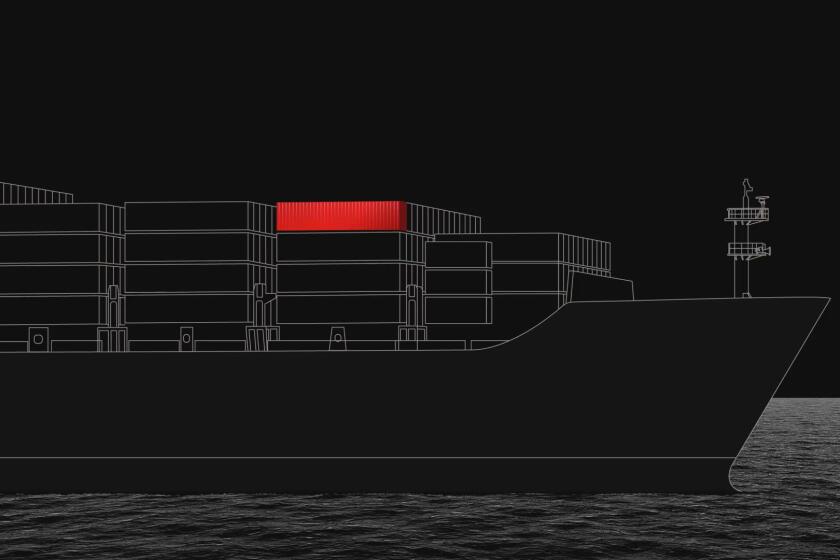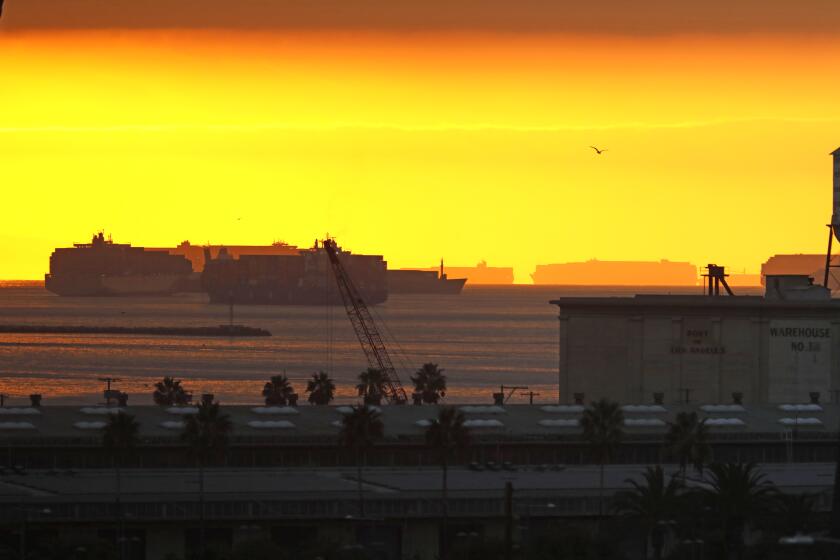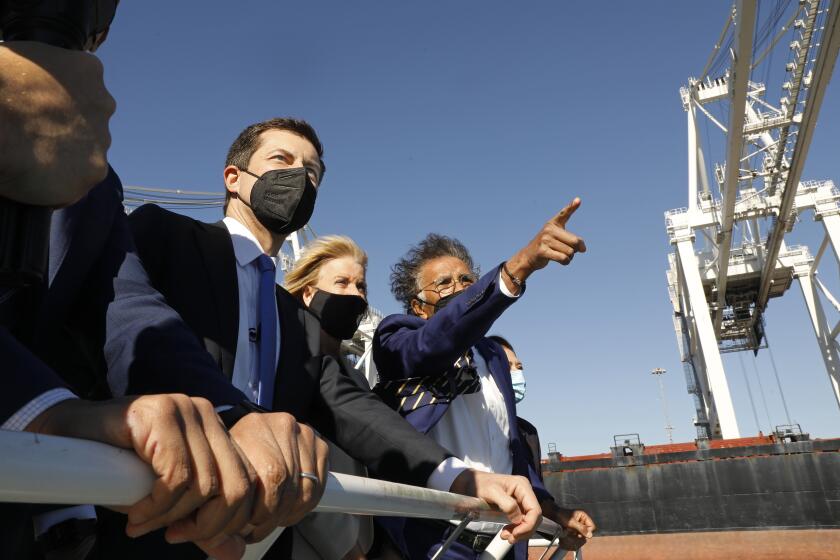Plan to charge shippers for abandoning empty containers is on hold at Port of L.A.

- Share via
The Port of Los Angeles, the nation’s largest for container traffic, has deferred a plan to charge ocean carriers that fail to clear empty containers off the docks and is consulting with the logistics industry about alternatives on how to cut the backlogs.
The proposed $100 daily penalty — which would have kicked in at the end of the month — may have “unintended consequences,” because some of the empty containers that have been sitting the longest may be buried under others, costing time “that our marine terminals simply don’t have to waste right now,” port Executive Director Gene Seroka said Thursday. He was speaking in a presentation to the Harbor Commission, which was scheduled to vote on the fee at the meeting.
U.S. supply chains have strained under unprecedented demand, worker and truck-chassis shortages and a shift to buying more material goods as Americans avoided travel and social outings over the course of the pandemic. The terminals at Los Angeles received record amounts of imports in 2021, and despite efforts by the port and the Biden administration, long delays continue there and at the neighboring Long Beach port, which combine to handle 40% of the U.S.’s inbound containers.
Follow a container of board games from China to St. Louis to see all the delays it encounters along the way.
Seroka said the fee proposal was intended to get the industry talking and it had been successful in doing so.
Truckers, represented by the Harbor Trucking Assn., have for months complained about restrictions on empty-container returns at major ports, saying these are among the top issues that need fixing to help ease U.S. supply chain bottlenecks.
Speaking before Thursday’s meeting, the trucking group’s chief executive, Matt Schrap, said it’s encouraging that there seems to be an openness to alternative ideas for fixing the situation.
Empty containers “need to be moved out, while not negatively impacting American exports and assisting the truck driving community so they could bring those empties back with a chassis and get the next round of imports,” Seroka said.
Pointing to a 40% reduction in ships anchored off Los Angeles and Long Beach, port officials say new rules are helping with the supply chain backlog and local air quality. But it all depends what you’re counting.
The trucking association has flagged port restrictions on empty-container returns as contributing to the backlogs. Trucks need a chassis to collect import-laden containers, but unless they bring an empty container to free up the chassis, they’re unable to move the import, he said.
Although the number of empty containers on Port of Los Angeles docks had fallen to about 72,000 from about 90,000 before the holiday break, getting under 70,000 had proved to be “a very strong point of resistance,” Seroka said.
The Harbor Commission voted unanimously to extend authorization of the so-called container dwell fee, which was first announced Oct. 25 — but was never implemented — and was set to expire after 90 days.
The commission also amended the dwell fee so that import containers moving by truck or rail can be charged the penalty fee after nine days, matching the period for containers bound for trucks and up from six days previously.
Although the twin ports of Los Angeles and Long Beach haven’t yet implemented the charge, its threat has reduced the number of import boxes sitting on marine terminals since late October by more than 60%, the ports said this week.
At the Long Beach port, Transportation Secretary Pete Buttigieg praised local efforts to improve supply-chain issues. But a fresh challenge looms.
More to Read
Inside the business of entertainment
The Wide Shot brings you news, analysis and insights on everything from streaming wars to production — and what it all means for the future.
You may occasionally receive promotional content from the Los Angeles Times.













